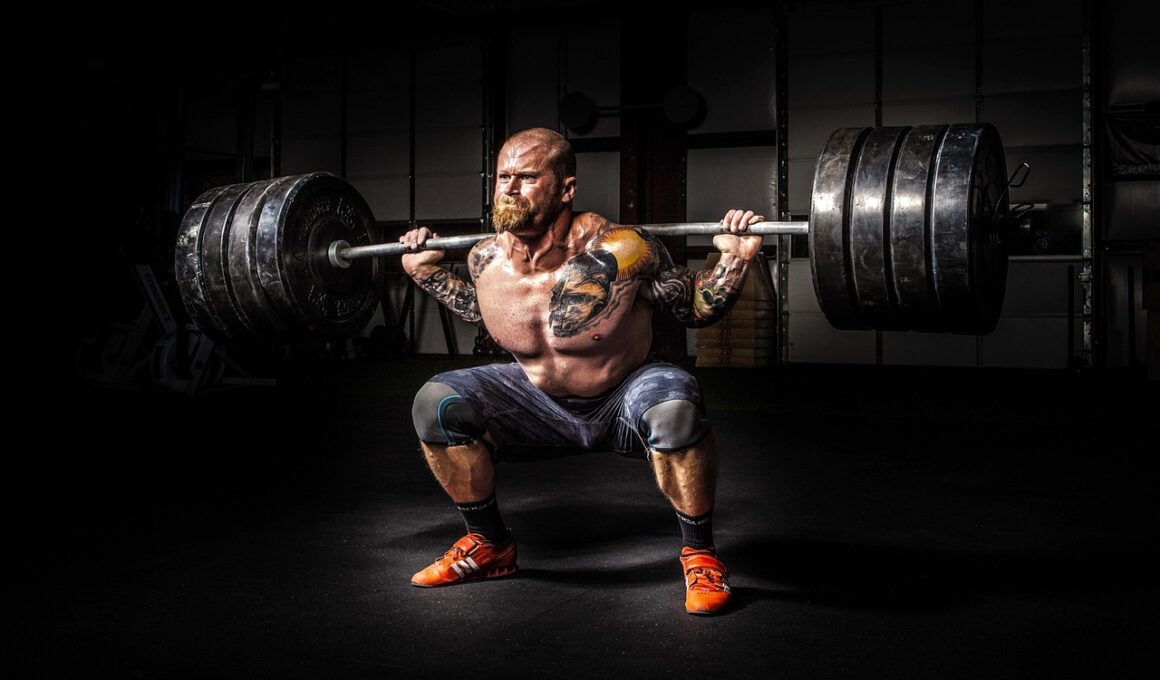Understanding Drug Testing in Bodybuilding
Drug testing is a pivotal aspect of bodybuilding competitions, designed to ensure fairness and integrity. As athletes aim to achieve peak performance, the temptation to use performance-enhancing substances can be high. Bodybuilding organizations, both amateur and professional, establish rigorous testing protocols to discourage drug use and promote a level playing field. Testing typically involves urine or blood samples and is often conducted randomly throughout competitions. In many jurisdictions, athletes are required to disclose any medications taken, as some may contain banned substances. The commitment to drug testing reflects a broader effort to maintain the sport’s credibility and value in the eyes of fans and potential participants. A strong anti-doping policy helps to create an environment where bodybuilders can compete fairly, focusing on their hard work and dedication rather than illicit advantages. Additionally, the consequences of failing a drug test—suspensions, disqualifications, and tarnished reputations—serves as a deterrent against doping. Fair play must always remain at the heart of competitive bodybuilding, reinforcing the ideals of discipline and integrity. Efforts continue globally to fine-tune testing practices and policies, adapting to evolving methods of substance use.
The implications of drug testing extend beyond the athletes themselves, affecting the entire bodybuilding community. Competitions thrive on reputations that are built around fairness, and any scandal can damage the trust fans and participants place in events. Furthermore, the visibility of drug policies enhances spectator enjoyment, as fans want to support genuinely talented athletes. Transparent drug testing practices help to improve overall public perception of bodybuilding, showcasing a commitment to clean competition. This, in turn, can attract new competitors eager to join a sport that values health and hard work over shortcuts. Aside from the ethical implications, there are some practical challenges associated with drug testing. Different countries have varying laws and regulations, leading to inconsistencies in how testing is performed. Bodybuilding federations must navigate these legal landscapes while enforcing rigorous anti-doping strategies. Such complexities can cause friction between local bodies and international federations, as procedures may not align perfectly. Addressing these challenges requires ongoing dialogue among stakeholders, unified policies that respect local laws, and adherence to international standards. Ultimately, a collaborative approach strengthens the sport and promotes the ideals of competition.
Impact of Fair Play on Competitions
Fair play is crucial in bodybuilding as it establishes the foundation for what the sport represents. Bodybuilding is not just about aesthetics; it is also about ethics, respect, and honor within the community. When athletes engage in fair play, they contribute positively to the sport’s image, encouraging others to follow suit. Moreover, when fair competition prevails, the allure of bodybuilding can broaden beyond hardcore enthusiasts to mainstream audiences. This attract broader participation, leading to a healthier and more engaged bodybuilding community. As athletes gain recognition for their accomplishments based solely on skill and perseverance, it sets a powerful precedent for aspiring bodybuilders. Fair play also reinforces accountability; competitors can feel confident that their hard work will be duly recognized without overshadowing that merit by substance abuse. This integrity enhances professional opportunities, sponsorships, and endorsement deals for athletes who uphold the values of the sport. It nurtures an environment where achievements are celebrated, motivating future generations to aspire to the same ideals. In conclusion, fair play fuels the legitimacy of bodybuilding competitions, contributing to a trustworthy and respectable sport.
The role of judges is also pivotal in upholding fairness during bodybuilding competitions. Judges evaluate athletes based on criteria that include symmetry, conditioning, muscularity, and overall presentation. Their decisions significantly impact the outcomes of contests, requiring them to maintain objectivity and professionalism. Judging panels are often composed of experienced bodybuilders and experts who understand the nuances of physique evaluation. To further enhance judgment quality, many organizations have begun implementing training and certification programs for judges. These initiatives aim to ensure that all competitors are evaluated on a consistent and fair basis, minimizing biases. Moreover, the transparency of judging criteria helps athletes focus on areas that enhance their performance. When competitors understand what judges seek, they can refine their routines and poses to showcase their physiques effectively. The establishment of clear judging guidelines contributes to minimizing disputes and controversies, fostering a smoother competition experience for all involved. As additional scrutiny is placed on judging practices, organizations enhance their credibility. The continual refinement of judging protocols further promotes a stable environment where competition is based on hard work, dedication, and legitimate skill.
Future Trends in Drug Testing
The future of drug testing in bodybuilding hinges on advancements in technology and a growing commitment to clean sport. As athletes become increasingly sophisticated in their methods, sports governing bodies are driven to adopt novel testing technologies. This includes testing innovations that can detect previously undetectable substances or methods. For instance, blood tests can reveal indicators of doping long after a substance has left the body, thus improving the effectiveness of testing protocols. Moreover, advances in data analytics are aiding organizations in improving their approach to combating doping. These methodologies can track patterns of substance use and identify potential offenders through predictive analytics. Bodybuilding federations are also exploring partnerships with anti-doping agencies, sharing resources and expertise to strengthen drug testing initiatives. Education plays an essential role, too, as athletes must be made aware of the ramifications of doping. Developing comprehensive educational programs on the dangers of performance-enhancing drugs, including their health risks, could serve as another strategy to combat this issue. Commitment to clean sport will cement bodybuilding’s integrity, fostering an environment where skill and hard work are celebrated rather than shortcut strategies.
Community involvement is another factor that shapes the future of drug testing and fair play in bodybuilding. Athletes, trainers, promoters, and spectators must collaborate to create and sustain a culture of transparency and accountability. Encouraging open dialogues about the risks and consequences of performance-enhancing drugs can foster a more responsible environment. Awareness campaigns can be mobilized within gyms, schools, and community programs—engaging aspiring bodybuilders with key messages about clean competition. By sharing success stories of athletes who have adhered to these ideals, organizations can inspire young talent to aspire to purity in their pursuits. Both local bodybuilding clubs and international federations can work together to cultivate a proactive community focused on the principles of fair play. This grassroots emphasis on ethical competition can eventually influence national policies and promote improved drug testing at higher levels. Alongside regulatory reforms, this community-based movement ensures a sustainable focus on endorsing clean sport and enhancing bodybuilding’s image. Ultimately, building a culture of integrity within the bodybuilding community will extend beyond just competitions; it can impact how future generations approach fitness and health.
Conclusion: Upholding Integrity in Bodybuilding
In conclusion, drug testing and fair play remain cornerstone pillars of bodybuilding competitions. As the landscape continues to evolve, both athletes and organizations must embrace the highest standards of integrity. With stringent drug testing protocols in place, the commitment to clean sport provides a firm foundation for trust at all levels. Fair play encourages healthy competition, showcasing athletes for their hard work, passion, and dedication. Judging panels are integral to maintaining an unbiased atmosphere, interpreting results impartially while adhering to established guidelines. Future advancements in technology offer promising enhancements for drug testing, equipping sports governing bodies with tools to combat doping effectively. Community engagement amplifies these efforts, fostering a supportive environment in which aspiring bodybuilders can thrive ethically. Furthermore, a united front against doping creates a sense of pride in the sport, showing that success is ultimately achieved through dedication and discipline. By championing these values, bodybuilding can continue to emerge as a respected discipline within the fitness world, inspiring future generations to appreciate the essence of fair competition. The choice to prioritize integrity will not only reinforce the sport’s values but also lay down a transformative framework for newer athletes in bodybuilding.


